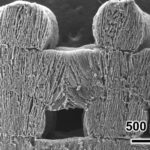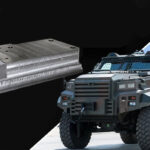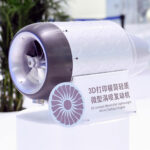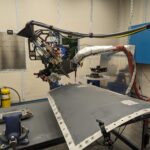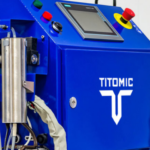The PIX Moving Team has unveiled the Robo-EV, a micro metal car with a 3D printed structure, modular design, and an AI-powered personal assistant. This compact electric vehicle uses advanced AI to detect the driver’s mood, engaging in emotional support and conversation if needed. Equipped with a voice-activated system, Robo-EV acts as a personal assistant, capable of both practical and emotional interaction through a large language model designed to interpret tone and mood.

Customizable Modular Design
Beyond its AI-driven features, Robo-EV offers a highly modular design, allowing owners to reconfigure the car for different uses. The micro car can be adapted as a cargo or delivery vehicle, and the PIX Moving Team envisions its potential for public transport and ridesharing. The open-air design of the Robo-EV, enhanced by 3D printed metal components, gives it a distinctive, futuristic aesthetic. This skeletal design provides drivers with a sense of openness, allowing for a cool breeze on warm days and fresh air during cooler weather.

3D Printed Metal Structure for Enhanced Durability
One of the most notable aspects of the Robo-EV is its manufacturing process. The PIX Moving Team has produced a prototype by 3D printing the entire car from metal, creating a cohesive structure without the need for assembly. By printing the vehicle as a single piece, PIX Moving aims to reduce potential failure points and improve the structural integrity of the car. This real-time manufacturing approach eliminates the need for traditional molds, enabling more complex designs and easier customization options for both the company and the consumer.

The suspension system also integrates innovative materials, utilizing basalt composites to provide a lightweight yet durable structure. This not only enhances the car’s robustness but also maintains its maneuverability, making it ideal for urban environments.


Fluid Architectural Design and Energy Efficiency
Robo-EV incorporates regenerative braking technology, allowing it to recharge the batteries while driving. This feature extends the vehicle’s range and reduces its energy consumption. Composite leaf springs are included to reduce weight, lower carbon emissions, resist corrosion, and improve vibration absorption, ensuring a smoother driving experience. The car also has a dome-like roof, accommodating drivers of various heights, and 3D printed metal wheel arches, with door designs inspired by fluid architectural styles that contribute to its sleek, modern appearance.
The PIX Moving Team conducted a test drive of Robo-EV on November 4, 2024, with results to be announced soon, marking a new chapter in the development of AI-enhanced, 3D printed electric vehicles.
Source: designboom.com


